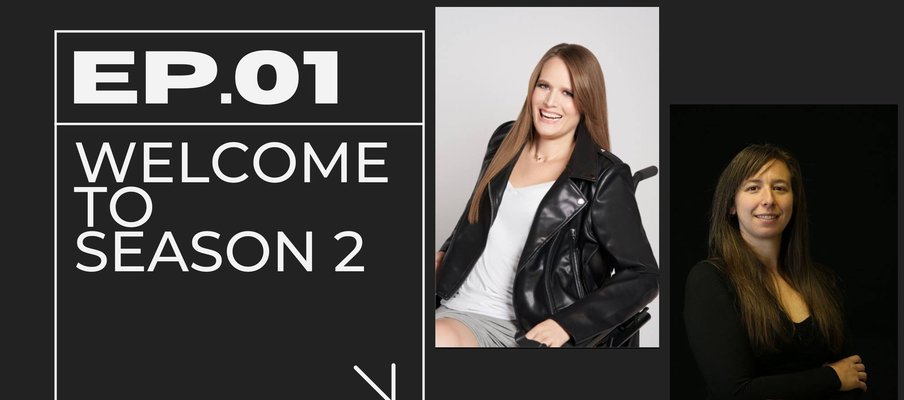
Podcast builds awareness around disability culture
In this issue
 Engage - Volume 15, Issue 1, Fall 2024
Engage - Volume 15, Issue 1, Fall 2024
Cultural Areas
ArtsWanting to create a sense of belonging and community that transcends barriers, Natasha Urkow and Maria Doyle launched the successful Mixed Crips podcast, now in its second season.
According to the founders, the podcast’s mission is to show people living with disabilities that there are others like them out there —brought together by disability culture. In each episode, artists Urkow and Doyle discuss their experiences with art, relationships, employment and more, through the lens of disability, often bringing in guests from Saskatchewan and beyond to the conversations.
“Community is at the forefront of our podcast,” Urkow says. “That is what it's for. It's to build this community to have a safe place where people with disabilities can listen, talk and give their opinions.”
Doyle first had the idea for the podcast years ago. She and Urkow frequently shared candid conversations that “came from shared understanding of a life within disability”. The duo formed a strong bond through sharing their experience with, as Doyle describes her undercover disability, (ADHD) and Urkow’s acquired disability (a spinal cord injury). The podcast was a way to bring in more people together for these important discussions.
“One of the big drives behind creating this podcast was for there to be a voice and a lens to answer some of these questions, these topics that people might be searching for but are too afraid to ask,” she says.
Having now surpassed the milestone of 1,000 listens over the past year, Urkow and Doyle are grateful to have received positive feedback and support from listeners both local and international. The podcast is accessible from anywhere in the world. The pair is also proud to have built community with the many diverse guests featured in the podcast who have experience with physical and cognitive mixed abilities.
Urkow says, it’s a privilege to host a safe space where people can share their stories. “Sometimes it's hard, sometimes it gets emotional. We are talking about things that can be tense, or can be a trauma for people — we've all struggled in one way or another to be accepted, to learn about disability, or getting treatment from outside the community,” she says. “We are privileged to be able to have these intimate moments.”
Recording and producing the podcast itself has been a “raw experience” in storytelling, says Doyle. When editing the episodes, the hosts frequently question whether to include or delete unfiltered moments. For example, there are moments in the recording when Urkow is calling for her care support. Or, there are moments where Doyle is burnt out from a week of recording and feels she is not making sense. “We intentionally leave it in because that is part of my experience with my disability,” Doyle says.
Going forward, the pair hopes to garner more support to continue hosting these conversations around disability culture. As a long-time member of the local arts community, Doyle says that, “the needle is moving too slow” for support for disability in the arts, which is why communitybuilding projects, such as the Mixed Crips podcast, are important.
“I think that arts and culture is the best way to affect change,” Urkow adds. “We truly believe in it, and I think that's what we're trying to do. That's the reason why we need to believe in it and keep it going.”
The second season of the Mixed Crips podcast was produced with support from SaskCulture’s Small Grant Accessibility Program (SGAP), with funding from the Sask Lotteries Trust Fund.

